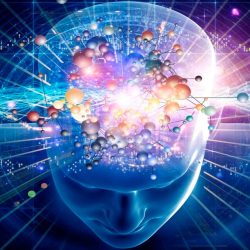
A relationship between quantum mechanics and psychology was first postulated by the physicist Niels Bohr in the 1930s (Geiser, 2005). However, it is only in the last few years that serious research has taken place in this field. Although quantum cognition adopts a radically different theoretical approach to classical psychology it has nothing in common with the so-called metaphysical, transpersonal, or “new age” theories that have misappropriated the term “quantum psychology”.
In short, quantum cognition asserts:
- that information processing by the brain is best explained using concepts derived from quantum mechanics;
- that information processing by the brain is best described using the mathematical language of quantum theory.
Quantum cognition rejects:
- the use of causal determinism, instead preferring to view cognitive processes as quantum probabilistic events which cannot be defined independently of either their measurement or their context.
Quantum cognition does not claim that the brain is a “quantum computer”.
References
-
Geiser, S. (2005). The Innermost Kernel: Depth Psychology and Quantum Physics. Wolfgang Pauli’s Dialogue with C.G. Jung. Berlin, Germany: Springer-Verlag.